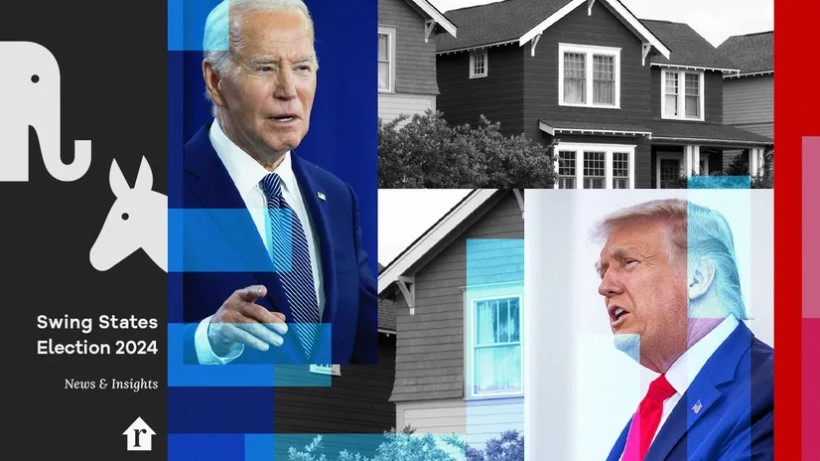Published by REALTOR.com | May 13, 2024
With mortgage rates up and home prices out of reach for many first-time buyers, the affordability crisis is increasingly in the spotlight as campaign season heats up.
In most presidential election years, home prices aren’t a key issue for voters or a major campaign talking point.
Consider it another way in which the 2024 election is anything but typical. With mortgage rates up and home prices out of reach for many first-time buyers, the affordability crisis is increasingly in the spotlight as campaign season heats up.
In March, President Joe Biden delivered a speech on home prices in the key swing state of Nevada after proposing a $10,000 tax credit for first-time buyers and those selling their starter homes.
Donald Trump fired back in a campaign video, accusing Biden of “waging full-scale war on the suburbs” that would decimate home values by expanding affordable housing options.
In addition to Nevada, the election will come down to just six other swing states: Arizona, Georgia, Michigan, North Carolina, Pennsylvania, and Wisconsin. Trump won all of them but Nevada in 2016, while Biden carried all but North Carolina in 2020. Neither candidate can win this year’s election without taking at least three of the swing states, unless the electoral map changes dramatically before November.
The debate comes as housing affordability reaches some of the most abysmal levels on record. Nationally, median list prices are up 28% since January 2021, and the home price-to-income ratio is at a record high of nearly 6-to-1, up from a ratio of 4.1-to-1 as recently as 2019.
The cost burden for renters is also alarmingly high, with nearly half of all renters in the nation spending more than 30% of their income and a quarter spending more than 50% on rent each month, according to U.S. Census data. Those sky-high rental burdens can make it difficult to impossible for many renters to save up for a down payment on their first home.
“Homeownership has for many years been an important part of the American dream, and if people feel like that’s slipping out of reach, we’re going to see that reflected in their attitudes about the election,” says Realtor.com® Chief Economist Danielle Hale.
“If people feel like the market itself is not able to meet their needs, then it’s not surprising to see them look to politics to try to find a solution,” she adds.


